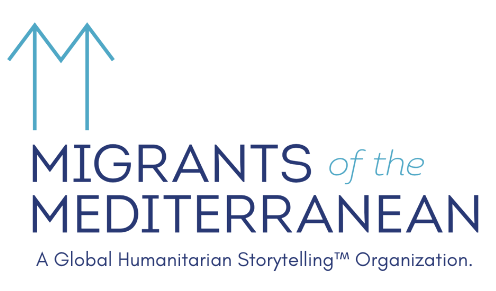Meet Ali
Ali (Gambia) in Martinszell-Allgau, Germany. 17 October 2022. ©Pamela Kerpius/Migrants of the Mediterranean
by
Pamela Kerpius
Recorded:
17 October 2022
Published:
20 October 2023
Meet Ali.
25 years old and from Serekunda, Gambia.
To reach Italy he crossed six countries: The Gambia, Senegal, Mali, Burkina Faso, Niger and Libya.
In total his journey took about six months, beginning with a bus that took him from Gambia to Senegal. He arrived in Kaolack, Senegal and transferred to another bus that brought him directly through to Bamako, Mali. He arrived at 10:00am at the bus station in Bamako, waited until nightfall, then continued his travel by bus to Niamey, Niger, where he went directly into hiding.
The connection house he found in Niamey was where he stayed for one week among over 100 other people. He continued his next leg to Agadez. It was another connection house in the city, again, with over 100 people hiding inside, where he stayed this time for two weeks. Getting there, he found multiple checkpoints along the route—always corrupt officers hijacked him for money. “Just money,” Ali said flatly, as if to imply it could be worse. “Agadez, for me, really, it’s like a dream,” he said, remembering the contours of the city before he was shuttled out of it toward the desert.
Ali crossed the Sahara desert in the back of a pickup truck with 30 people, including seven women and two children over five days. He had water, and sufficient food, but eventually water supplies dwindled and hard choices became required of people.
“Just one time we stopped one place for water and it was so crazy,” Ali said, remembering the contaminated well. “Monday, Tuesday,” he began counting on his fingers, “Wednesday—yeah, Wednesday I drink that water and I was vomiting for two days.”
Throughout the Sahara human remains lined the road. “Not one, but thousands” of bodies Ali said. He felt lucky. Everyone on his truck survived to see Libya, stopping intermittently for breaks. Gatrone, Libya, was the first city he stopped in in the country, but he didn’t stay, he only passed through until reaching a much larger one.
Ali’s stay in Sabha, Libya, for the next three weeks was uncharacteristic. “For me, I was safe,” he said, about his time in a compound that held more than 100 people, including kids, babies, and women. Others around him had harder times to think of. “You die or escape or you pay,” said his friend King (Gambia), “It’s fucked up.”
Ali though had enough money in his pocket to secure food and water. So inside the compound he remained, waiting, not going out, just watching the days tick by before his next transfer would come.
“Everyday people are coming...”
His direct transfer to the seaside camp in Sabratha, Libya, came and he remained on the shore in an unfinished structure for a month. It was an “incomplete house,” said Ali, as his friend Buba (Gambia), who had also made the journey through Libya interjected, “Everywhere in Libya is incomplete.” It was a space defined by transience. “Everyday people are coming,” said Ali, who named a figure exceeding 100. People are also going.
At 5:00am Ali pushed off the Libyan shore and crossed the Mediterranean Sea in a rubber boat with more than 100 people, including women and pregnant women—“Every boat there is a pregnant woman,” he said, as if to set the record straight. He only saw water and the sky around him. Five hours later at 10:00am he was rescued by an Italian vessel and landed in Sicily, Italy, on 5 October 2016. A day or two later he was put on a bus and was transferred to Treviso, Italy, a city in the north of the country, not far from Venice.
He is 31 years of age now and living in Martinszell, Germany, where we recorded this story on 17 October 2022.
Ali is an amazing human being.

